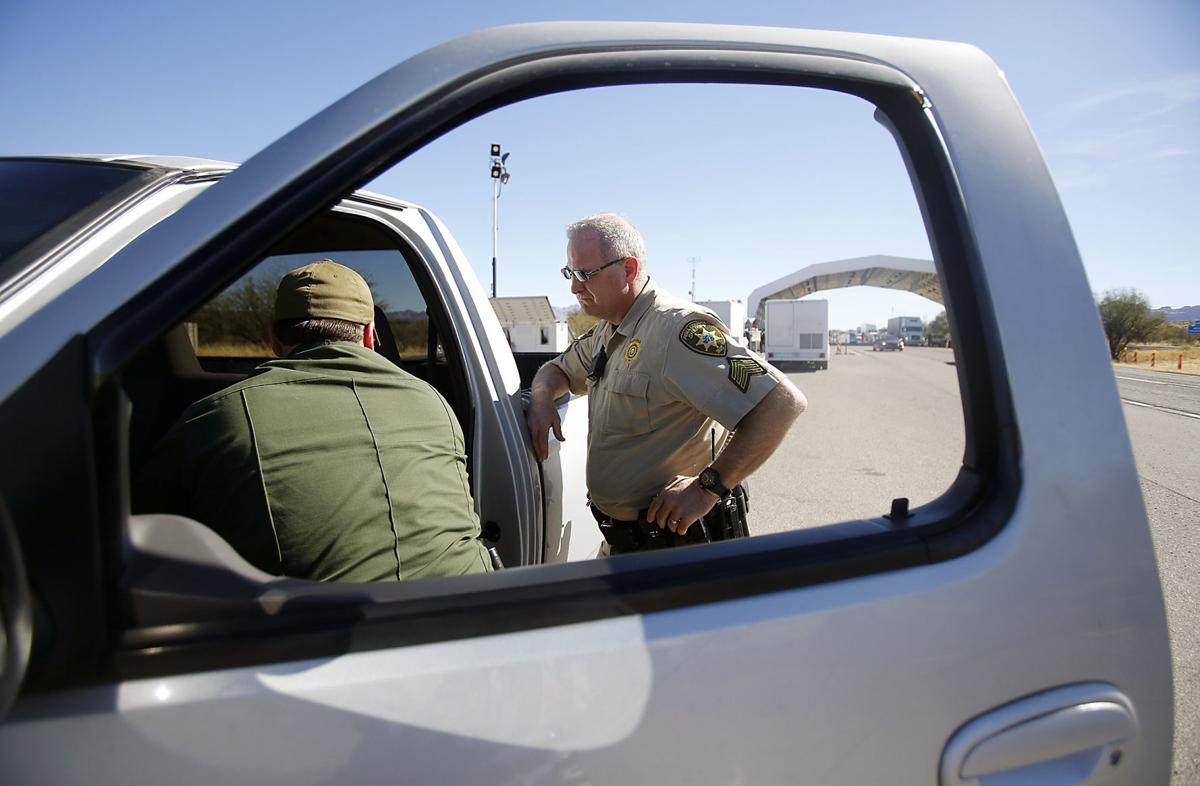After a $1 million grant for federal border protection efforts was terminated last year, the Pima County Sheriff’s Department is hoping to find a path to bring the funding back.
Despite the decision by the Pima County Board of Supervisors to terminate the $1.4 million Operation Stonegarden grant, the Sheriff’s Department has applied for another round of funding, and Sheriff Mark Napier told the Arizona Daily Star he anticipates being awarded about $2 million as a result.
But the Board of Supervisors will have to vote to accept any funds awarded.
Last year, the $1.4 million grant was used to help cover mileage, overtime and equipment costs.
“I really believe in Stonegarden funding and I believe in the efficacy of it and the public safety value,” Napier said. “I don’t think it unnecessarily entangles the department in what are federal immigration activities.”
Napier said that if the supervisors approve the funding this time around, he welcomes the guidance of the Community Law Enforcement Partnership Commission, which was established last year to give advice and counsel regarding Stonegarden funds. After the funds were rejected, CLEPC was repurposed to review other grants, which Napier said is “completely out of (the commission’s) depth.”
“I’m hopeful (things will go differently this time around), I’ve done everything that I think that I can do,” Napier said, adding that as the largest border county in the United States, Pima County should be a part of the national discussion about border security. “It’s unthinkable to me that we would not want to be at the table for something that has a serious, national focus right now — that we would actually withdraw from the table.”
Supervisor Sharon Bronson, who voted to reject Stonegarden funding last June, was unavailable to speak Friday but forwarded the Star copies of letters sent earlier this month to Gov. Doug Ducey and Homeland Security Secretary Kirstjen Nielsen by the Arizona Border Counties Coalition, of which she is a member.
The letters detailed several modifications to the Stonegarden grant that would ensure adequate compensation for county expenses, including increasing the mileage reimbursement, clarifying grant guidelines regarding equipment purchases, revising the grant to clearly indicate that local law enforcement needs take priority over Stonegarden efforts, ensuring reimbursement of indirect costs and using existing local law enforcement technology to enhance border security.
On March 5, County Administrator Chuck Huckelberry sent a memo to the supervisors, saying he instructed the county’s Grants Management and Innovation Department “that no grant acceptance on behalf of the County is to be processed unless there is a clear indication that indirect costs can and are being reimbursed.”
Supervisor Richard Elías also voted to reject the funds and said that his position hasn’t changed.
“I think the federal border policy has actually gotten crazier in the time that’s elapsed,” Elías told the Star, citing continued family separations, militarization of the border and Friday’s veto by President Trump of a Senate measure to overturn his declaration of a national emergency at the border. “I can’t see how it would benefit us to work with Customs and Border Protection.”
Tucson group Justice Alliance: Indivisible Southern Arizona has been opposed to the county’s acceptance of Stonegarden funds since last year. Spokesman Steve Diamond said the group will continue to oppose the use of Stonegarden funds unless something has drastically changed in this year’s grant proposal.
“Operation Stonegarden is conducive to racial profiling and discrimination on the part of sheriff’s deputies,” Diamond said, adding that acceptance of Stonegarden funds also makes the more disadvantaged portion of the community less likely to report crimes if they know that deputies are collaborating with Immigration and Customs Enforcement and Customs and Border Protection.
With the unprotected border creating a humanitarian crisis, Napier says something has to be done and that this shouldn’t be a partisan issue. Instead, the community and public officials should look at what’s the best public policy.
“I’m at the twilight of my career life, and I think when you get to that point, you start thinking about, ‘What contribution did I make, how did my life matter and did I do the things I should do during my career life?’” Napier said. “When I do retire, I want to be able to say I did the very best I could. And I wasn’t perfect, nobody is. And I made mistakes like everybody does, but I never made a mistake of heart. That’s what really, really matters to me.”





